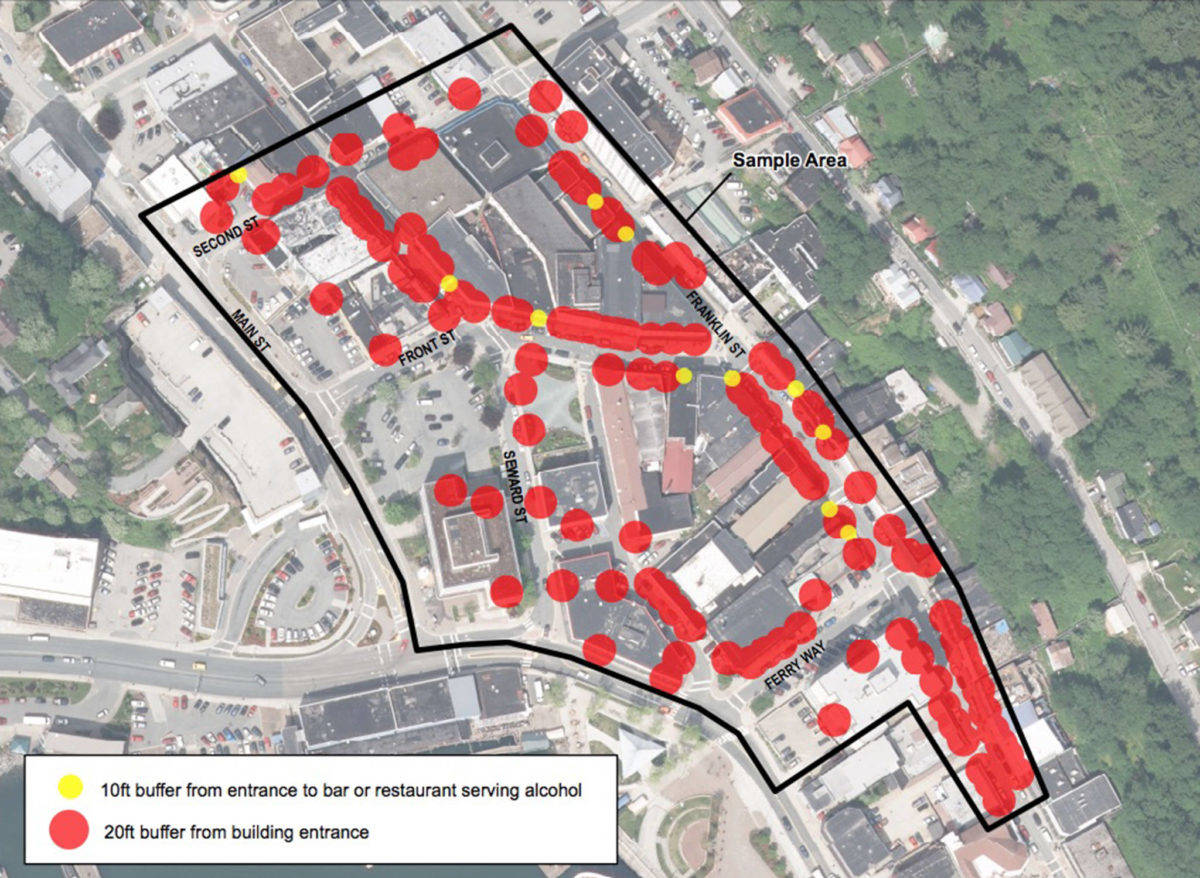It just got about about 10 feet harder to find a place to smoke downtown. Yes, even for vapers.
The City and Borough of Juneau Assembly voted unanimously Monday to approve an ordinance that would align the city code with state smoking laws that were passed last May. Conforming CBJ statue (36.60.010) to these slightly more restrictive state codes makes it easier for the smoking codes to be enforced by police and minimizes confusion as to where people can smoke, City Manager Rorie Watt said.
[City might change its smoking laws to match state]
The main change is that people will have to be 20 feet away from a restaurant if they want to smoke, which is 10 feet more than the buffer required by the former code. Downtown Juneau, which has a heavy concentration of bars and restaurants, will now be a challenging place to smoke, according to a diagram provided to the CBJ Committee of the Whole at a meeting in November.
“The big difference between the state statue and our law was the distance that you could smoke outside from doors, windows, vents, ducts, whatnot,” said Watt. “In some instances the state distance was farther. So we changed ours to fall in line with what the state’s doing.”
People will have to be 20 feet away from any windows or air ducts from a restaurant, not just the main door. Now police will be able to write tickets based on city law, instead of relying on state laws. This way, local prosecutors control the case instead of state officials.
Watt said it hasn’t been a big issue in the past, but it will make it easier for police to enforce the laws, now that the city and state laws are the same.
“The issue is that the police are generally working on bigger problems,” Watt said. “They only enforce something like smoking if someone is being particularly difficult.”
Assembly member Loren Jones also amended the ordinance to include a broader definition of vaping from just tobacco and marijuana to include any form of inhalation of vapor or aerosol from chemical substances that “may cause an adverse effect on human health.”
“[State Bill 15] did that at the state level,” he said. “It clarified vaping and definitions of vaping.”
Municipal Attorney Robert Palmer said the new electronic smoking definition is almost identical to the state law from SB 15 now. The only difference is that they did not include of a form of marijuana vaping, since city code already prohibits smoking of any marijuana products downtown.
Watt said he plans to discuss on-site marijuana consumption regulations with the Assembly on Feb. 4.
The city has been proactive when it comes to smoking laws, as the CBJ has restricted smoking in certain places since 2001. In 2008, the city expanded its smoking ordinance to prohibit smoking in private clubs that sell alcohol or food. The city defended its laws in court when the Fraternal Order of the Eagles sued the city alleging that the laws violated First Amendment and Alaska’s right to privacy. The Alaska Supreme Court disagreed and decided in favor of the CBJ in 2011.
The updated ordinance goes into effect on Feb. 6.
• Contact reporter Mollie Barnes at 523-2228 or mbarnes@juneauempire.com.

